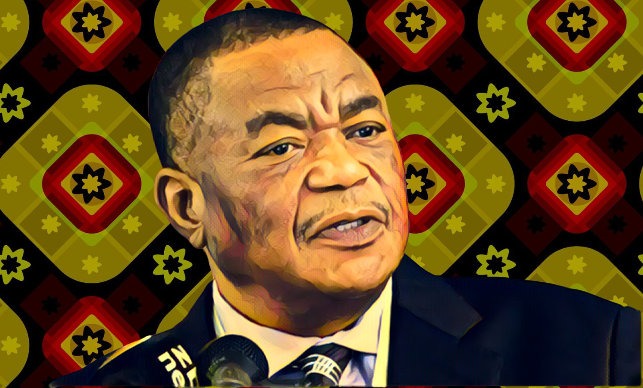In a recent clash of political ideologies, Zimbabwe’s Vice President, Constantino Chiwenga, criticized opposition leader, Nelson Chamisa, highlighting the deep divisions within the country’s political arena. Chiwenga referred to Chamisa as unfit for politics and more suitable as a “goat herder” due to perceived immaturity and self-centeredness.
Chamisa, a lawyer and clergyman, recently left the Citizens Coalition for Change (CCC), a party he helped establish in 2020. His departure was sparked by the infiltration of the CCC by members of the ruling ZANU PF party, leading to significant political fallout. This fallout included the resignation of two CCC legislators who vacated their parliamentary seats in solidarity. This move prompted by-elections, further stirring the political pot.
Chiwenga made these comments in the lead-up to an upcoming by-election in Harare East. During his speech, he publicly criticized Chamisa. However, this wasn’t just a personal attack. It was also a strategic move to consolidate support and maintain the current political status quo. Chiwenga used historical imagery to remind his supporters of the significance of April 28, 1897, which marks the beginning of the first Chimurenga war, a pivotal resistance against colonial rule. This resistance is symbolized by the execution of spirit mediums Mbuya Nehanda and Sekuru Kaguvi.
On the other hand, Chamisa expressed concern that the nation is deviating from its core values during Zimbabwe’s 44th Independence Day celebrations. He criticized the current governance under ZANU PF, expressing disappointment in the country’s lack of basic necessities that he believes represent true independence. Chamisa argued that independence should provide dignity and fulfill basic needs such as food and shelter, which he feels are currently lacking under the current regime.
Chamisa’s rhetoric suggests a vision for a pluralistic society where changing political parties should be as normal as changing one’s clothes, indicating his support for a vibrant, multi-party democracy. He contrasts this vision with what he perceives as a de facto one-man, one-family state, criticizing the lack of genuine democratic processes and freedom of speech.
The opposition leader also highlighted the importance of opportunity as a cornerstone of national prosperity, linking it to the dignity and value of every citizen. He proposed that wealth in a nation should be measured not just by monetary riches but by the collective dignity and opportunities available to its people. His vision extends to the infrastructure, emphasizing the need for a well-maintained system that supports the country’s growth and the well-being of its citizens.
In his call to the people of Zimbabwe, Chamisa urged for unity and love, encouraging fellow countrymen to collaborate towards building a “new great Zimbabwe.” This appeal to nationalistic pride and collective progress contrasts with the division caused by current political rivalries.
The political discourse between Chiwenga and Chamisa exemplifies the ongoing power struggle in Zimbabwe. It reflects the broader challenges faced by many African nations, where political stability is often undermined by personal rivalries and party infighting, impeding progress towards democratic governance and economic stability.
As Zimbabwe approaches the by-elections, the rhetoric from both sides is likely to intensify. For voters, the choices made at the polls may signify more than just a selection of candidates; they could represent a decision on the direction in which they want their country to move, either towards continued strife or towards a more inclusive and prosperous future. The results of these elections will be a significant indicator of the political climate and the potential future direction of governance in Zimbabwe.
Source: Newsday


